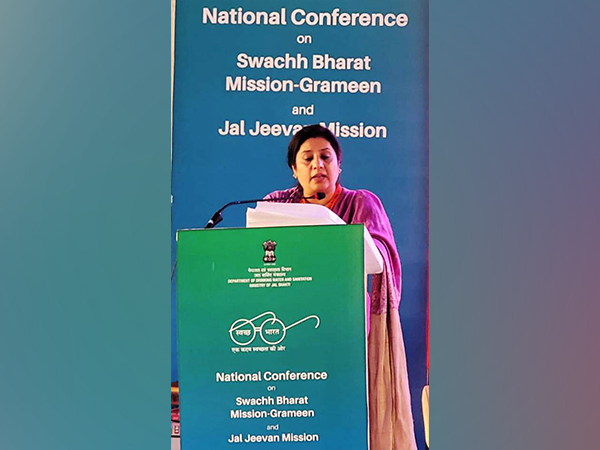J&K: Top rural sanitation officer highlights importance of sustainability for achieving Swachhata goals
Lucknow (Uttar Pradesh) [India], February 18 (ANI): Director General, Rural Sanitation, Jammu and Kashmir, Anoo Malhotra, participated in the two-day National Conference on Swachh Bharat Mission-Grameen (SBM-G) and Jal Jeevan Mission (JJM) held in Lucknow on the 16th and 17th of February.

The conference aimed to discuss strategies and initiatives to further the goals of the SBM-G and JJM programmes.
DG Malhotra gave a detailed presentation on the Swachhata Green Leaf Rating (SGLR) initiative and information education and communication (IEC) strategies at the conference, which brought together diverse stakeholders from across states and UTs, fostering a confluence of ideas and best practices.
The Swachhata Green Leaf Rating initiative is aimed at improving sanitation standards in the hospitality sector, with a focus on rating hotels and other establishments based on their sanitation practices, encouraging them to adopt best practices and improve overall sanitation standards.
Malhotra highlighted the best practices–from Swachh Yodha Pratiyogita, Swachhata Bank, Waste to Wonder, War against Waste, Give Garbage Get Gold, Rural Technology Park, Swachh Samagaam, My 10 Kg Plastic, and other initiatives adopted by Jammu and Kashmir to promote sanitation and hygiene practices among the masses. These practices have been instrumental in raising awareness and encouraging behavioural change towards sanitation practices.
Jammu and Kashmir’s innovative IEC strategy received all the praise from participants and delegates.
In her presentation, DG Malhotra emphasised the importance of sustainability in achieving the goals of SBM-G. She outlined the way forward to achieve these goals, stressing the need for continued efforts and innovative approaches to ensure the sustainability of sanitation practices in rural areas.
The conference saw the participation of Union Minister of Jal Shakti, Gajendra Singh Shekhawat, alongside other eminent personalities, including Atul Kumar Tiwari, Secretary, Ministry of Skill Development and Entrepreneurship; Swatantra Dev Singh, Cabinet Minister of Jal Shakti, Uttar Pradesh; and Vini Mahajan, Secretary, Department of Drinking Water and Sanitation (DDWS).
Day one of the workshop covered a range of topics through panel discussions and interactive sessions. The Minister of Jal Shakti, Gajendra Singh Shekhawat, launched three impactful books from SBM-G. He spoke about the critical time of this conference, which comes when both JJM and SBM-G have reached significant junctions in terms of their outputs and when the focus needs to be on sustainability.
He spoke about the work we do in SBM-G and JJM, which must be done in mission mode when we are addressing the concerns of saturation and transformative missions in JJM and SBM.
The National Conference on SBM-G and JJM provided a platform for stakeholders from across the country to share their experiences, learn from each other, and strategize for the future. Malhotra’s presentation was well-received, and her insights are expected to contribute significantly to the ongoing efforts to improve sanitation in rural Jammu and Kashmir.






